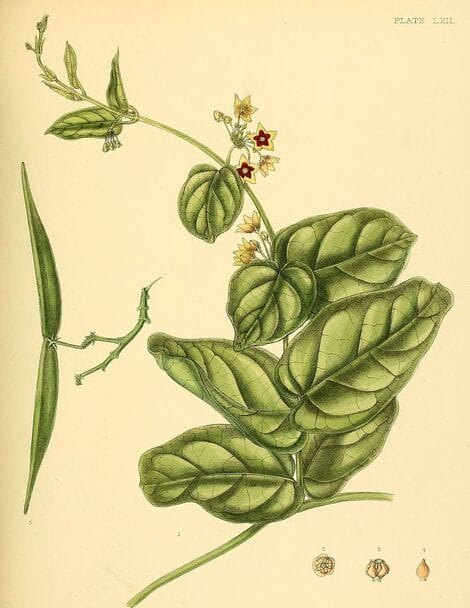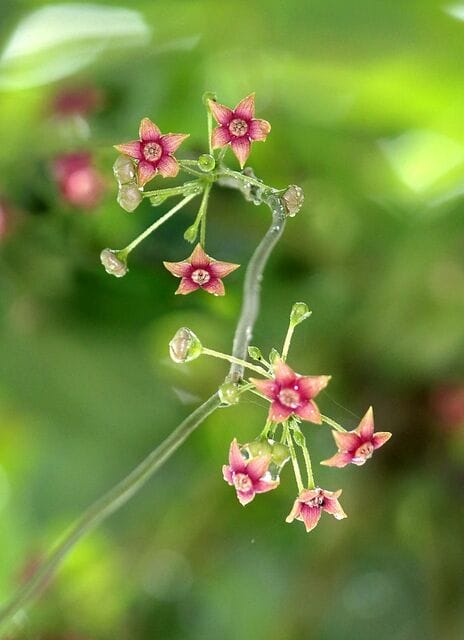Tylophora, AnthrapachakaIndian IpecacAnthrapachaka (Ayurveda) Kurinjan (Siddha) Wa Er Teng (TCM, related spcies) |

|

|
 Tylophora indica
Tylophora indicaA hand-book to the flora of Ceylon (1895) (Wikimedia)
 Tylophora indica
Tylophora indica(Photo by Rison Thumboor) (Wikimedia)
Botanical name:
Tylophora indica (syn. T. asthmatica)
TCM uses the root of T. floribunda
Parts used:
Root; Leaf is emetic and used as a substitute for Ipecac
Temperature & Taste:
Cool, dry. Bitter. Toxic
Uses:
1. Clears Heat, Stops Cough and Wheezing: (Ayurveda, Siddha)
-Cough, Bronchitis, Asthma
-allergies of the Respiratory tract; Rhinitis
-clinically very useful for Bronchial Asthma and Allergic Rhinitis
-regarded as guiding Qi downwards
2. Clears Heat and Damp: (Ayurveda, Siddha)
-Diarrhea, Amoebic Dysentery
-Syphilitic Rheumatism (Siddha)
-Autoimmune disorders associated with heat
-Anti-protozoal
3. Emetic:
-leaf is used as a substitute for Ipecac
Dose:
250–500mg
Doses of 3–6 leaves have been used for Bronchial Asthma
Comment:
TCM uses the root of T. floribunda, called Wa Er Teng. The Indian T. indica is called Yin Du Wa Er Teng, indicating it is viewed as a variety. The Chinese is used to clear Phlegm, stops Cough, clear Wind-Phlegm Fright in children, and to clear Wind-Damp pain. It is also used to clear Toxin in Diphtheria, Snake Bites, Abscess and Boils. In addition, they share similar alkaloid profile.
Substitute:
1. It is considered as a substitute for Ipecacuanha (as an emetic)
Main Combinations:
1. Cough, Asthma from Vata (Wind), with Licorice, Long Pepper
2. Lowered Immunity, with Withania, Sida cordifolia
Cautions:
1. Toxic in overdose or long-term use. Not used for more than 10 days without a break. Side effects may include nausea and vomiting
2. Not used during Pregnancy
3. Alcohol extracts of the leaf show immuno-suppressive effects.
Toxicity:
Large doses of the leaves can be fatal.
